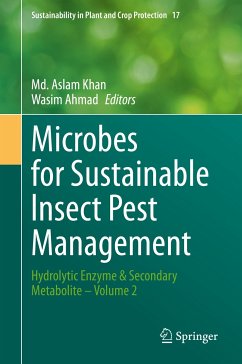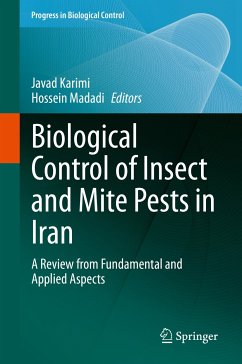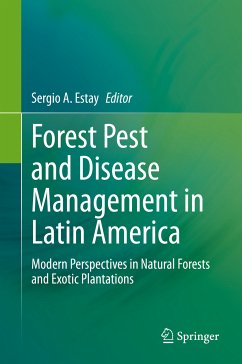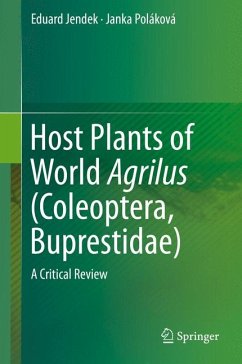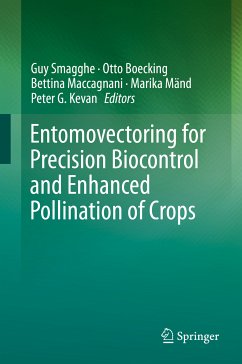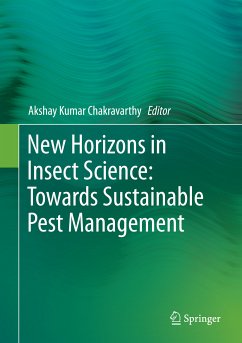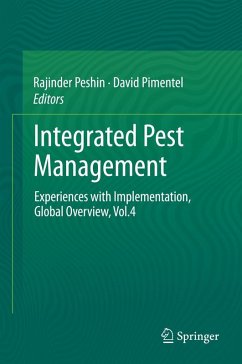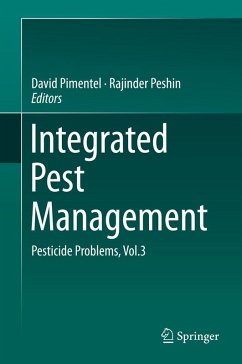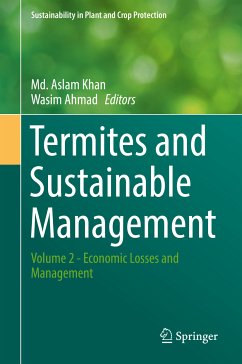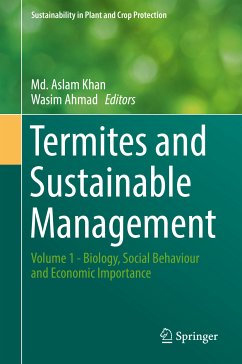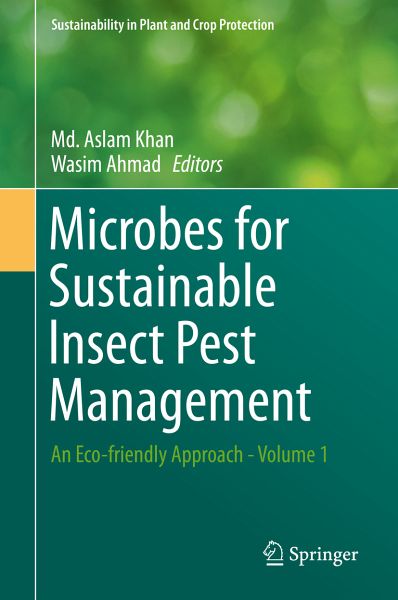
Microbes for Sustainable Insect Pest Management (eBook, PDF)
An Eco-friendly Approach - Volume 1
Redaktion: Khan, Md. Aslam; Ahmad, Wasim
Versandkostenfrei!
Sofort per Download lieferbar
112,95 €
inkl. MwSt.
Weitere Ausgaben:

PAYBACK Punkte
56 °P sammeln!
This Volume comprises 14 chapters in an attempt to provide the reader with available information on safe and effective use of entomopathogens. Chapters in this book dealing with soil-borne entomopathogens and their phylogeny also provide a review on most updated information of their isolation and molecular identification. Employing fungal pathogens in biological control programmes plays a key role, and conidial thermotolerance and oxidative stress are examined in separate chapters. Entomopathogenic bacteria are able to kill their hosts quickly. An important contribution concerns informations p...
This Volume comprises 14 chapters in an attempt to provide the reader with available information on safe and effective use of entomopathogens. Chapters in this book dealing with soil-borne entomopathogens and their phylogeny also provide a review on most updated information of their isolation and molecular identification. Employing fungal pathogens in biological control programmes plays a key role, and conidial thermotolerance and oxidative stress are examined in separate chapters. Entomopathogenic bacteria are able to kill their hosts quickly. An important contribution concerns informations provided upon bacterial cytotoxic factors on insect haemocytes. Nematodes are biological control agents safe to the environment. The information with respect to their direct and indirect effects on non-target organisms is provided. Viruses as highly specific, virulent candidates for use as biological insecticides are safe to non-target species. A separate chapter on the role of granuloviruses inIPM contributes a wealth of information. Biopesticides in combination with synthetic insecticides are reported as effective, economic, and eco-friendly. Understanding their interactions will certainly promote their uses. Finally, emphasis has been given on reviewing synergistic and antagonistic interactions of microbial and chemical pesticides, in other chapters.
Dieser Download kann aus rechtlichen Gründen nur mit Rechnungsadresse in A, B, BG, CY, CZ, D, DK, EW, E, FIN, F, GR, HR, H, IRL, I, LT, L, LR, M, NL, PL, P, R, S, SLO, SK ausgeliefert werden.



